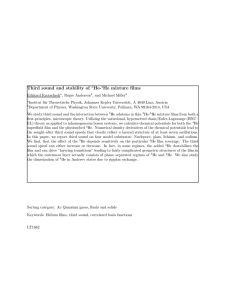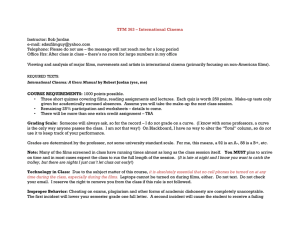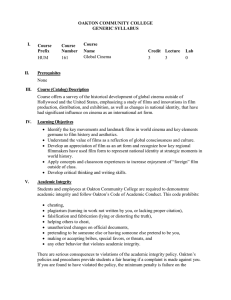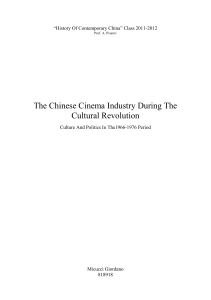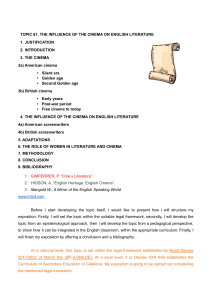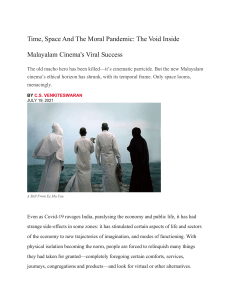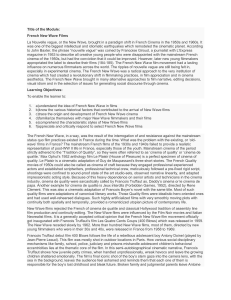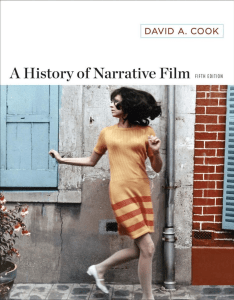Approaches to International Film: The Experience of Modernity
advertisement
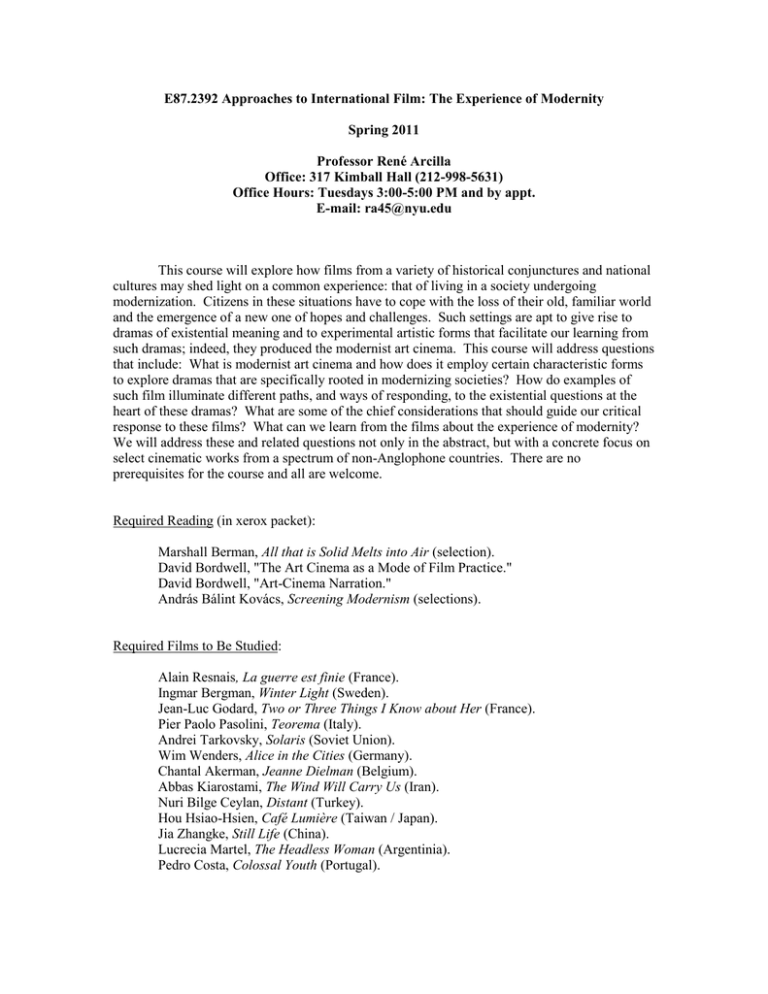
E87.2392 Approaches to International Film: The Experience of Modernity Spring 2011 Professor René Arcilla Office: 317 Kimball Hall (212-998-5631) Office Hours: Tuesdays 3:00-5:00 PM and by appt. E-mail: ra45@nyu.edu This course will explore how films from a variety of historical conjunctures and national cultures may shed light on a common experience: that of living in a society undergoing modernization. Citizens in these situations have to cope with the loss of their old, familiar world and the emergence of a new one of hopes and challenges. Such settings are apt to give rise to dramas of existential meaning and to experimental artistic forms that facilitate our learning from such dramas; indeed, they produced the modernist art cinema. This course will address questions that include: What is modernist art cinema and how does it employ certain characteristic forms to explore dramas that are specifically rooted in modernizing societies? How do examples of such film illuminate different paths, and ways of responding, to the existential questions at the heart of these dramas? What are some of the chief considerations that should guide our critical response to these films? What can we learn from the films about the experience of modernity? We will address these and related questions not only in the abstract, but with a concrete focus on select cinematic works from a spectrum of non-Anglophone countries. There are no prerequisites for the course and all are welcome. Required Reading (in xerox packet): Marshall Berman, All that is Solid Melts into Air (selection). David Bordwell, "The Art Cinema as a Mode of Film Practice." David Bordwell, "Art-Cinema Narration." András Bálint Kovács, Screening Modernism (selections). Required Films to Be Studied: Alain Resnais, La guerre est finie (France). Ingmar Bergman, Winter Light (Sweden). Jean-Luc Godard, Two or Three Things I Know about Her (France). Pier Paolo Pasolini, Teorema (Italy). Andrei Tarkovsky, Solaris (Soviet Union). Wim Wenders, Alice in the Cities (Germany). Chantal Akerman, Jeanne Dielman (Belgium). Abbas Kiarostami, The Wind Will Carry Us (Iran). Nuri Bilge Ceylan, Distant (Turkey). Hou Hsiao-Hsien, Café Lumière (Taiwan / Japan). Jia Zhangke, Still Life (China). Lucrecia Martel, The Headless Woman (Argentinia). Pedro Costa, Colossal Youth (Portugal). Course Requirements: You are expected to attend class regularly and to be prepared to discuss the scheduled reading and film. The latter requirement is particularly important, because the course is designed to emphasize class discussion over lecture. In addition, you are expected to write response papers of 2-3 pages on two films, one in each half of the term, and to present these responses to the class in order to prime our discussion. Finally, you are expected to write a term paper of 1015 pages that examines a film we did not discuss and explains why it may be considered an example of modernist art cinema, and in what measure it is a successful or unsuccessful example. Your course grade will be determined by the quality of your class participation and of your writing.


